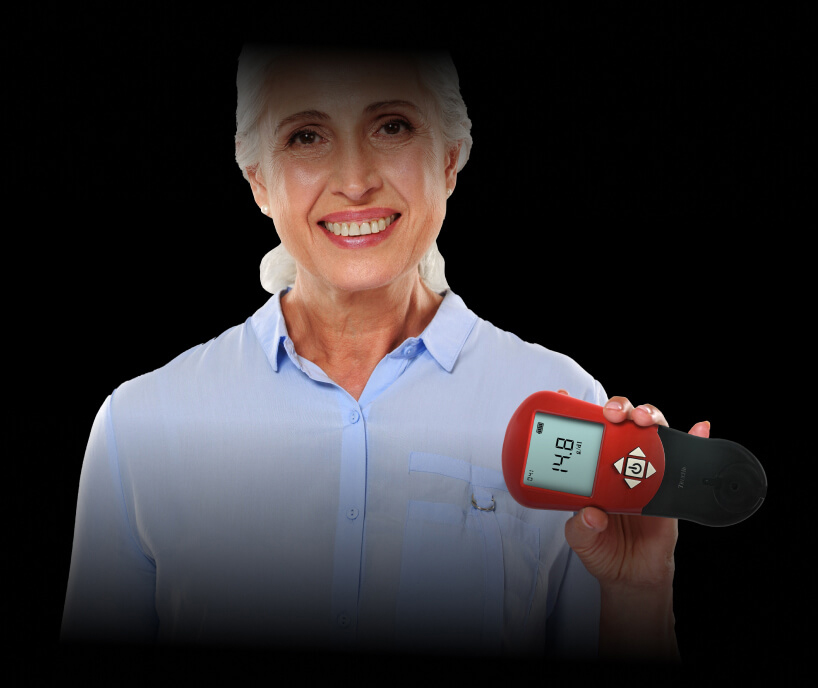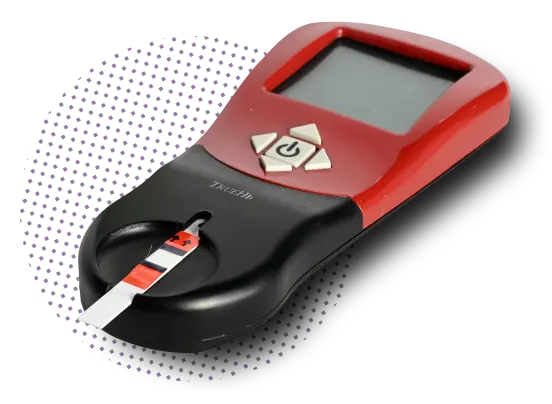Menopause is a natural biological process that marks the end of the reproductive cycle in women. It leads to changes in the hormonal balance that fluctuate hemoglobin levels. Regular monitoring of hemoglobin helps you to get your health insights.

Menopause is a natural biological process that marks the end of reproductive or menstrual cycle in women. When a female does not get her periods for 12 consecutive months and loses the ability to get pregnant, the stage is called menopause. It occurs in females between the ages of 45 and 55. There are three stages of menopause: perimenopause, menopause, and post-menopause.
The changes in the body from periods every month to no periods is called the peri-menopause stage. In early menopause, the levels of estrogen hormone decrease, which affects the menstrual pattern and may cause heavy bleeding. As a result, it leads to low hemoglobin and low iron levels. After the periods stop, the menopausal stage appears, followed by the postmenopausal phase. During the menopausal phase, the skin lining in the uterus also becomes thin due to a drop in estrogen levels. The thinning of the skin lining in the uterus is called endometrial atrophy and may cause abnormal bleeding with hemoglobin loss in women. The hemoglobin levels in healthy females are 12 to 13.5 g/dL, which decreases to <10mg/dL and causes iron-deficiency anemia in menopausal females. The menopausal iron-deficient women suffer from the following symptoms:-
In such a scenario, the doctors prescribe iron supplements to increase hemoglobin or hormone replacement therapy (HRT) to manage the associated risks of the condition. Vitamin-C-rich and iron-rich foods such as lean meats, leafy greens, legumes, and fortified cereals are also recommended to maintain hemoglobin levels. Thus, it is necessary to monitor and maintain your hemoglobin levels to ensure overall health in menopause.

Hemoglobin provides oxygen from the lungs to other body parts. Hemoglobin levels are maintained by adequate iron intake. In menopause, females risk developing iron deficiency anemia due to low hemoglobin levels and less iron intake. The doctors recommend iron supplements in menopausal women to improve hemoglobin levels. Thus, it is necessary to monitor hemoglobin levels in menopausal women to know her health insights or efficacy of iron supplements.
In a menopausal woman, hormone levels decrease which leads to a decline in bone density. In severe cases, it may cause osteoporosis which makes bones weak and fragile. Monitoring and managing hemoglobin levels along with proper nutrition and exercise, helps to ensure overall bone health during and after menopause.
The hormonal changes in the post-menopausal woman increase the risk of heart disease. Hemoglobin contributes to overall cardiovascular health by supplying oxygen to the heart muscles. So, it is relevant to monitor your hemoglobin levels to support cardiovascular health during menopause.
Fatigue, lack of energy, weakness, tiredness, and loss of productivity are the common symptoms during menopause. Low hemoglobin may cause anemia that leads to fatigue and weakness. Monitoring and maintaining healthy hemoglobin levels is essential for overall well-being.
I started using TrueHb when I suffered heavy menstrual bleeding and fatigue during menopause. It helps me to monitor my hemoglobin levels and I make sure that the levels remain stable.
I’ve been on hormone replacement therapy during menopause, and my doctor recommended I check my hemoglobin trends regularly so that he can make necessary changes to my treatment plan. I came to know about TrueHb. It is a simple and easy method that makes me curious about my hemoglobin levels.
I did not know the connection between hemoglobin levels and menopause. I suffer fatigue, mood swings, and lack active lifestyle. TrueHb reassured me to keep a healthy routine by assessing hemoglobin levels regularly.

US Patented Technology | Instant Results | Wide range of measurement | Accuracy as per US CLIA guidelines
1. Rechargeable Battery
2. Accuracy as per USFDA CLIA guidelines
3. Wide Measurement Range 0-24 g/dl
4. Operating range 5-55°C
5. Two Years Shell Life of Strips
6. 23 Gauge lancets for accurate results
Menopause indirectly influences hemoglobin levels through changes in menstrual bleeding and dietary habits.
Low hemoglobin levels can lead to anemia, fatigue, weakness, and impacts the overall quality of life.
Fatigue, weakness, pale skin, shortness of breath, and cold hands and feet.
During menopause, women can consume iron-rich foods such as lean meats, leafy greens, legumes, and fortified cereals, or iron supplements as recommended by doctors. Vitamin C-rich foods can enhance iron absorption. Importantly, keep a check on your hemoglobin levels regularly with TrueHb.
Yes, it is necessary to monitor hemoglobin levels regularly during menopause. You can monitor your hemoglobin levels at home with TrueHb hemometer.
Hemoglobin supports overall bone health by delivering adequate oxygen supply to the bone tissues.
Hemoglobin measurement during menopause helps you to assess iron status and overall health. Menopausal women are at high risk of developing iron deficiency anemia. So, tracking and maintaining your hemoglobin levels during menopause is important.
The frequency of hemoglobin monitoring depends on the individual health. Generally, it is done once or twice a month, as required.
High hemoglobin levels cause polycythemia in menopausal women.
Hormone replacement therapy increases hemoglobin levels and helps in menopausal symptom management.
Recognizing symptoms is vital for addressing hemoglobin deficiency. If you've noticed any symptoms, please share your email/phone number for symptom results for a free consultation with us if you are concerned about your health.
The content and information about the patented hemoglobinometer device displayed on this website are proprietary. Any unauthorized use, copying, or disclosure of this information, without explicit permission, is strictly prohibited and may result in legal consequences.
Customer Support : 1800 309 0932
Copyright @ TrueHb All rights reserved 2024